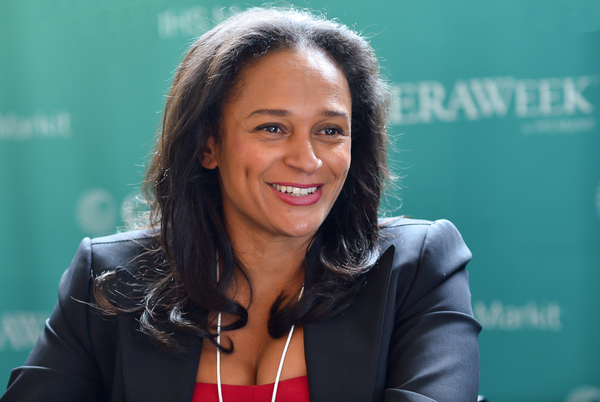Elite universities are where global corporations go to recruit talent and sometimes to whitewash their reputations. But rarely is the hypocrisy and mutual back-scratching as brazen as in the partnership between University of Notre Dame in South Bend, Ind., and the global accounting firm PwC—a transaction the university inadvertently highlighted in a commercial during Saturday night’s college-football showdown against Stanford, broadcast during primetime on NBC.
The spot touts the efforts of Notre Dame’s Washington Program to combat corruption in Africa. The program’s undergrad sleuths, we learn, played some vague role in imposing US sanctions on Isabel dos Santos. The daughter of the late Angolan strongman José Eduardo dos Santos, Isabel used her connections to amass a $2.2 billion fortune before finally facing the music in the form of local investigations and international travel bans and asset freezes.
“Taking on someone like Dos Santos is extremely challenging,” intones Thomas Kellenberg, director of the program. “But at Notre Dame’s Washington, DC, campus, my course on global sanctions teaches undergraduates to identify corruption and build legal cases against the perpetrators.”
That’s what Greg Miller, ND class of 2022, did. “During [Kellenberg’s] class, I realized I could fight global corruption, even as a college student. . . . We set out to prove Dos Santos was guilty of corruption. We poured through thousands of pages of leaked documents and research from other organizations. We ended up with a dossier outlining why the US government should sanction Dos Santos.” Kellenberg submitted the dossier to Foggy Bottom, et voila!—Dos Santos was sanctioned.
“Western firms [help] facilitate shady capital transfers in the Global South.”
As Kellenberg’s and Miller’s language suggests, there is a structural flaw in the Washington Program: namely, the assumption that “global corruption” is something that only ever happens over there, in dusty, miserable places where people earn fewer than $30 a day. In reality, global corruption compasses the supposedly transparent, democratic West, with many leading Western firms helping facilitate shady capital transfers in the Global South.
Firms like PwC—a major donor to Notre Dame’s diversity, equity, and inclusion initiatives.
As The Guardian and the International Consortium of Investigative Journalists reported in 2020, PwC “advised companies belonging to Dos Santos and her husband across multiple jurisdictions.” All told, PwC worked with 20 of the companies controlled by Dos Santos and her husband in Switzerland, Malta, the Netherlands, and Angola. Dos Santos herself began her post-college career with PwC’s corporate predecessor, and her former employer went on to earn “millions” by servicing her assets, per The Guardian.
A year after its Dos Santos scandal, PwC was again in the news, this time under happier circumstances. In November 2021, the University of Notre Dame announced the creation of “a campus center devoted to current and new diversity and inclusion programs, resources, and initiatives for students.”
The news release added that “professional-services firm PricewaterhouseCoopers (PwC) has generously contributed a $1 million gift that will help underwrite programmatic elements for the center, with the intention to raise $9 million in additional funding over a five-year period.”
“PwC has long been purpose-led and values-driven,” said Rod Adams, US and Mexico talent acquisition and onboarding leader at PwC. “Creating a culture of belonging and demonstrating inclusive leadership is at the forefront of our strategy and is a critical element to developing today and tomorrow’s leaders.”
Consider the circle of elite love in all its complexity and grandeur: PwC served numerous companies controlled by Africa’s corruption queen, creating work for the would-be sanctions engineers at Notre Dame, which in turn helped PwC perform public ablutions in exchange for a fat donation to its diversity efforts. You have to admire how elite institutions—capital and woke academe—take care of each other.
